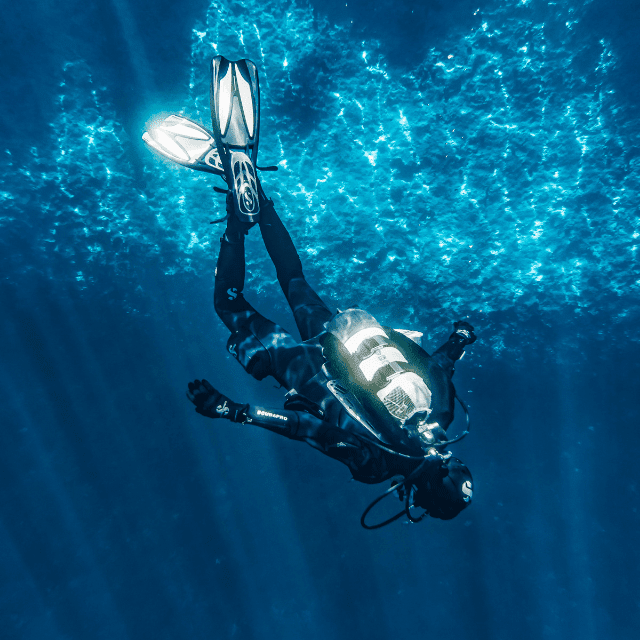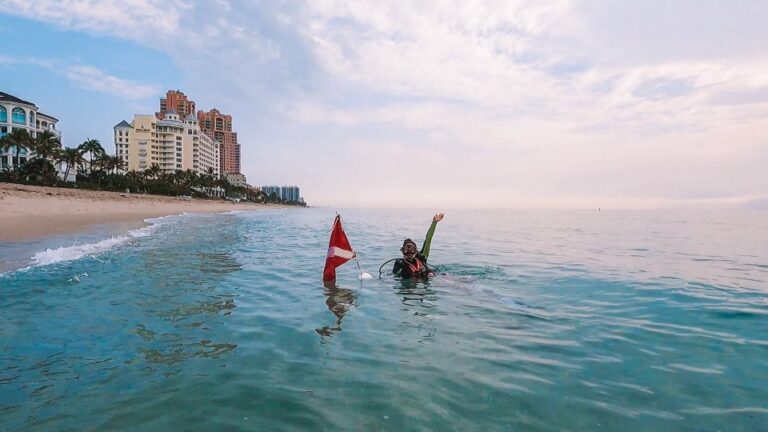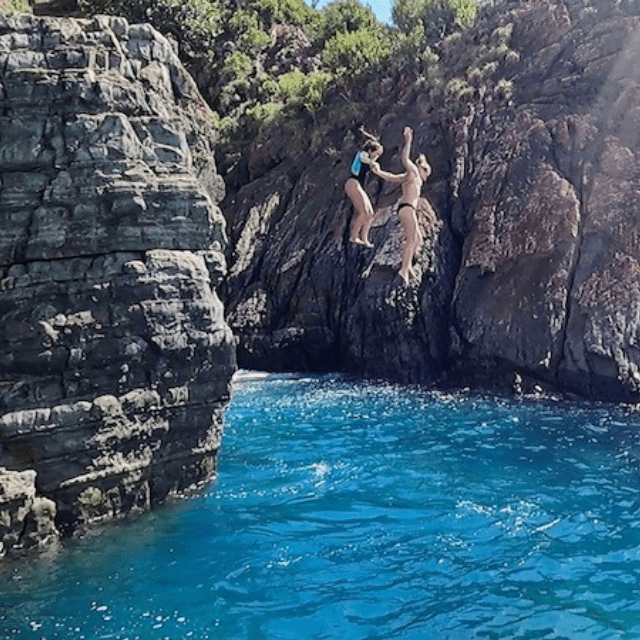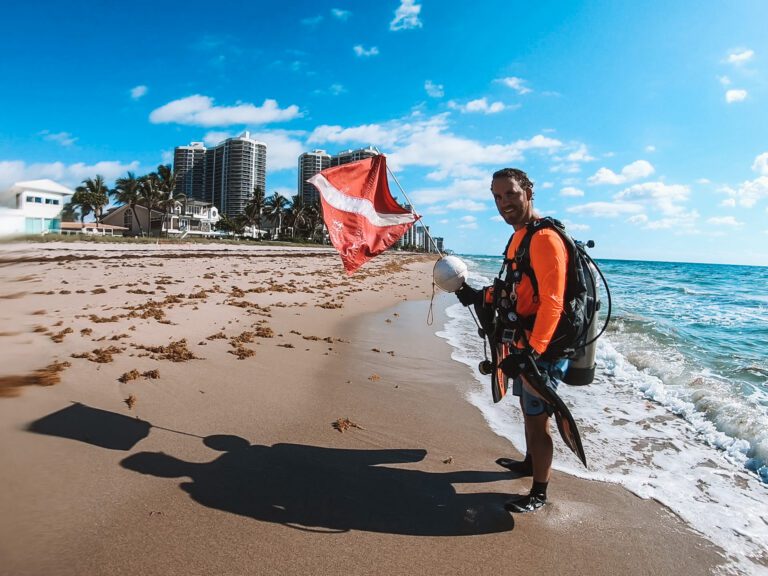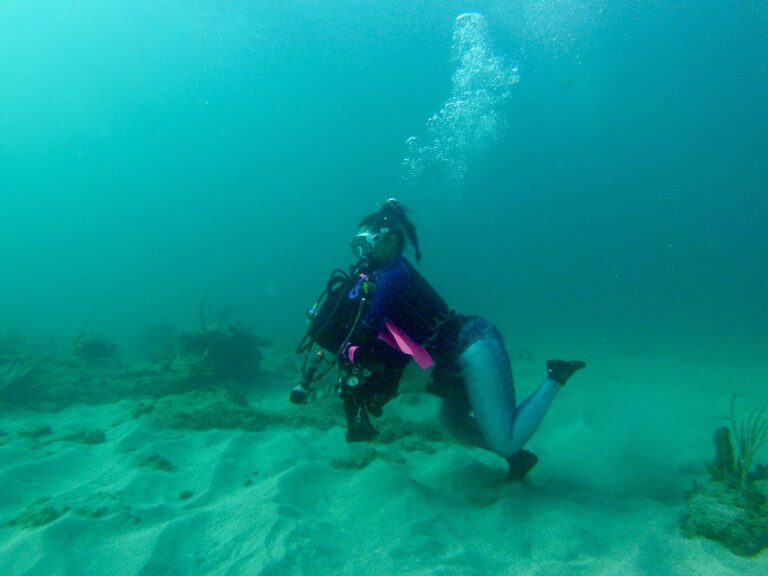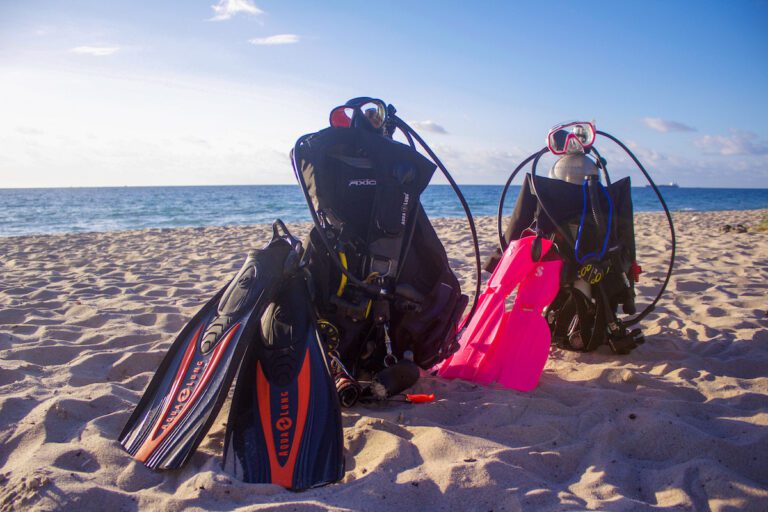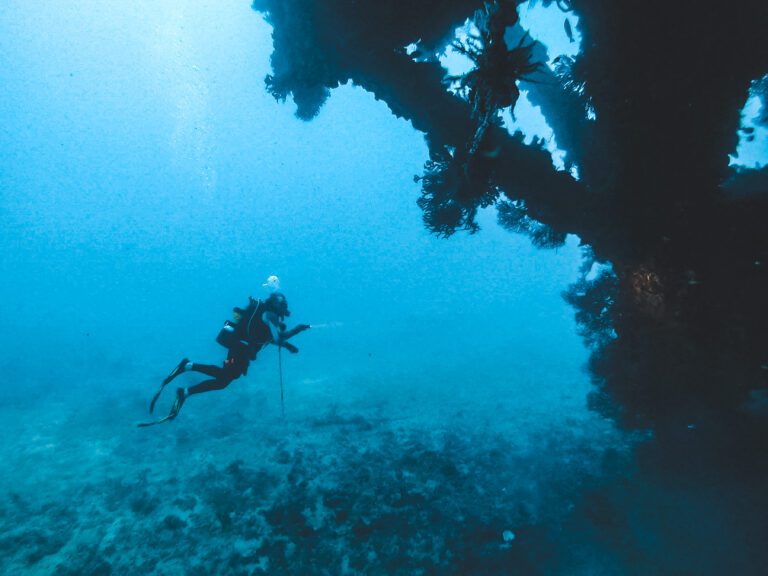15 Epic Scuba Diving Facts Every Diver Should Know
Drop some knowledge on your next dive trip with these 15 scuba diving facts that every diver ought to know.
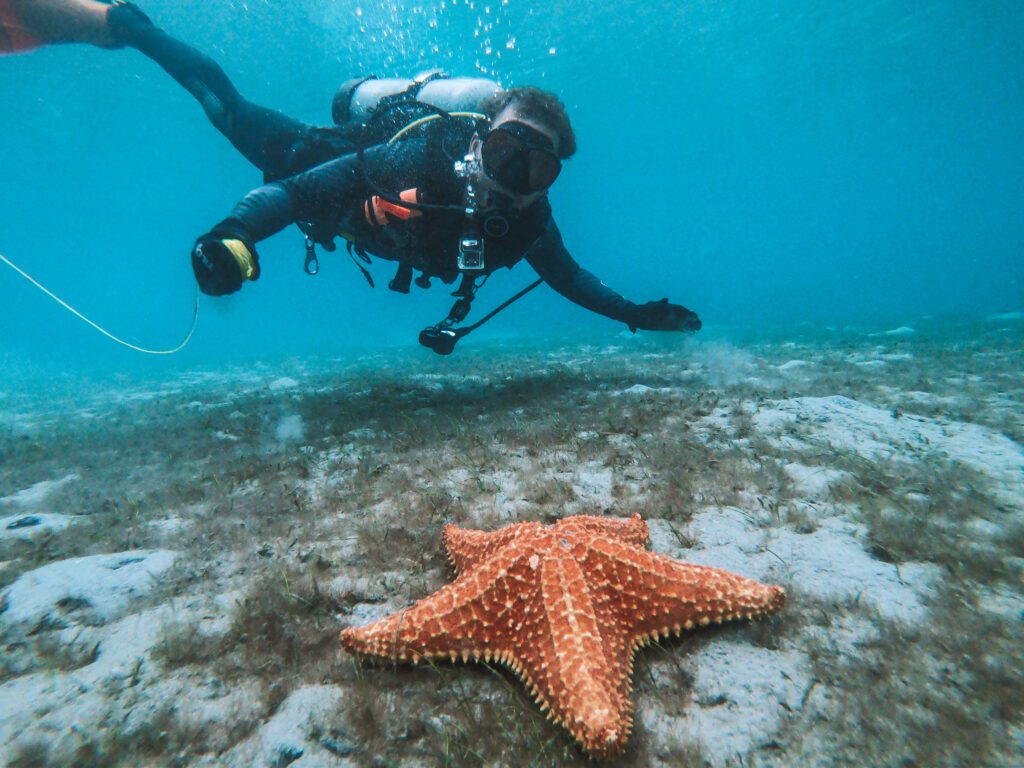
Facts About Scuba Diving
Whether you’re interested in getting scuba certified, you’re a seasoned diver or you’re new to the game, ever diver should be knowledgeable about the sport we all love. These facts are sure to spice up your next conversation aboard the dive boat!
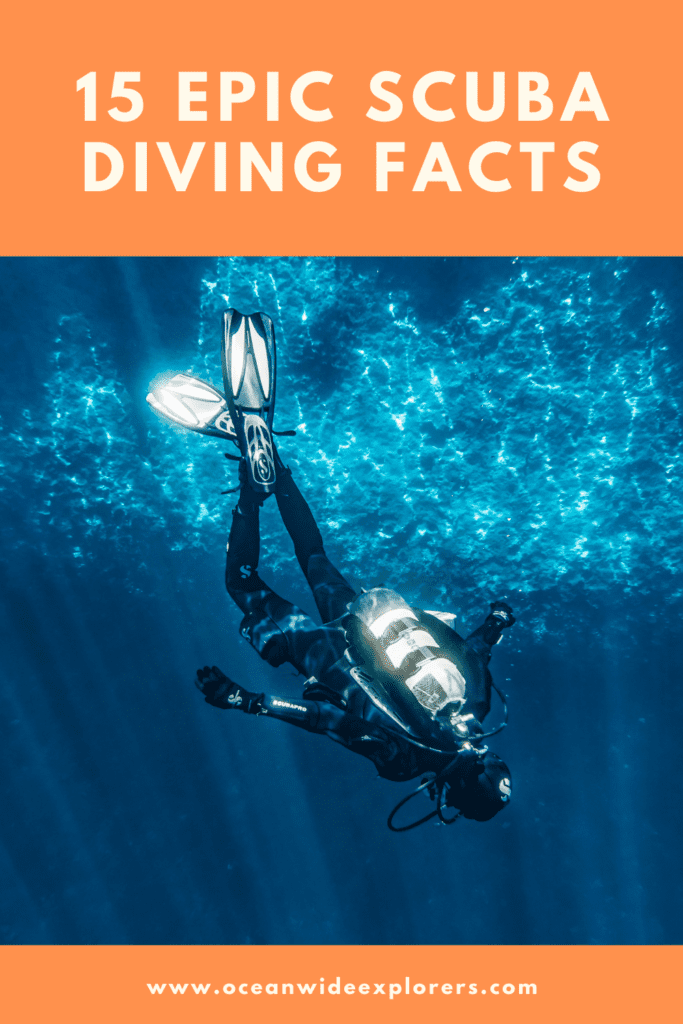
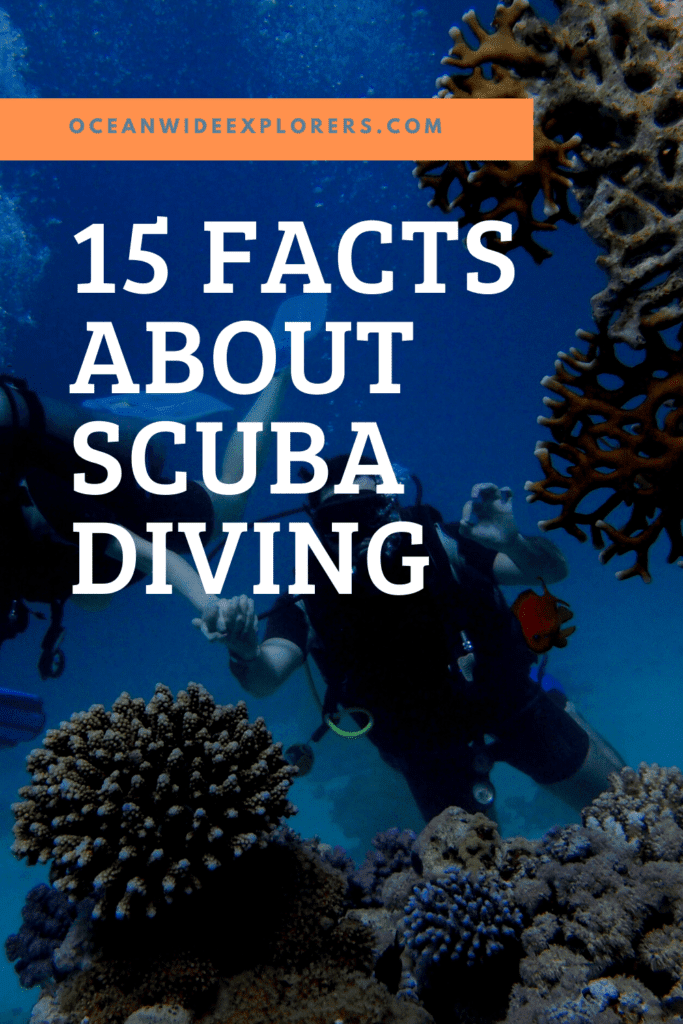
15 Scuba Diving Facts
15 epic scuba diving facts your hooked-on-diving-brain has been craving.
1. SCUBA is an acronym
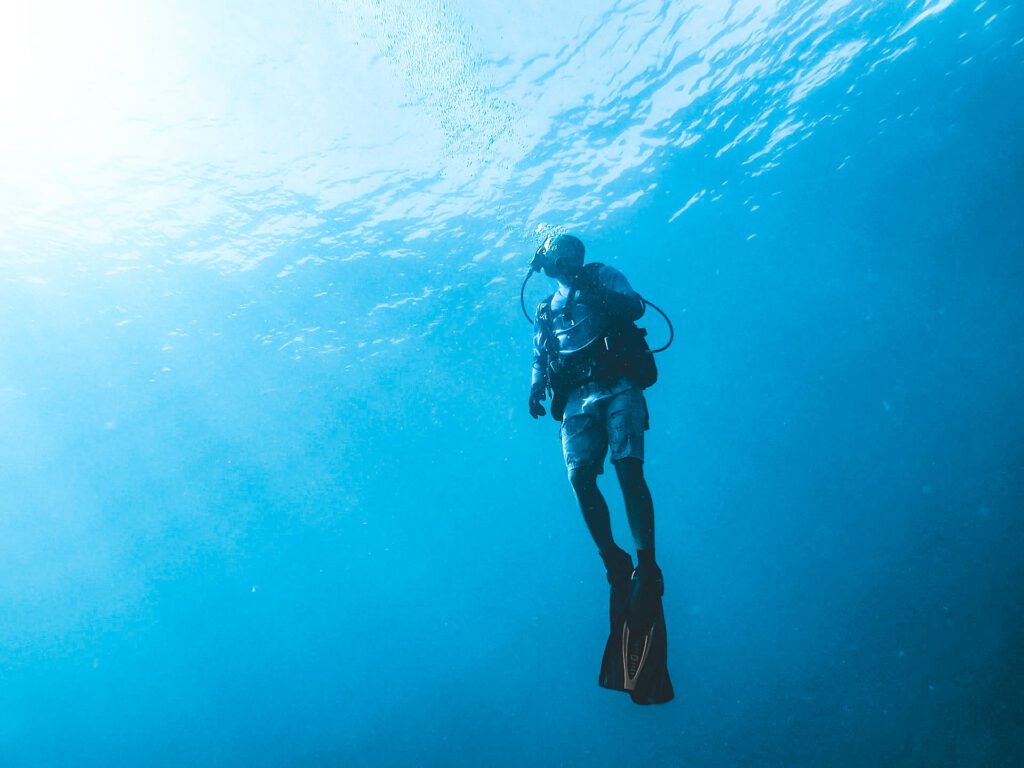
SCUBA is full of acronyms. In fact, SCUBA itself IS an acronym. It means:
- Self
- Contained
- Underwater
- Breathing
- Apparatus
READ MORE: BWRAF – What It Means and How to Use It
2. Jacques Cousteau invented the first Aqua Lung
Today, Aqua Lung is a popular brand of dive gear (my favorite!) However, before it was a gear brand, it was the first breathing apparatus that worked on demand. Meaning, the regulator wasn’t continuously spewing out air from the scuba tank (not good if you wanted to stay below the surface for any amount of time).
If you aren’t familiar with Jacques Cousteau, well, he was sort of a badass with a lot of good work continuing in his name today.
3. Earth is mostly water
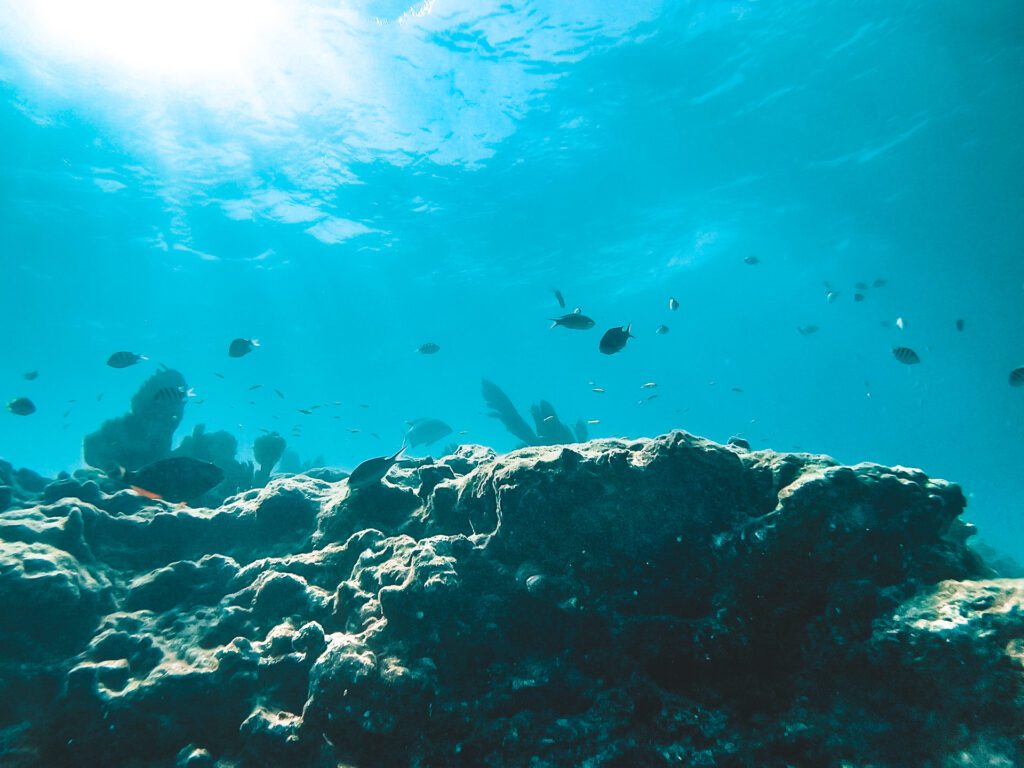
71% to be exact – which leaves you and me PLENTY of area to explore while scuba diving!
4. The ocean is the last frontier
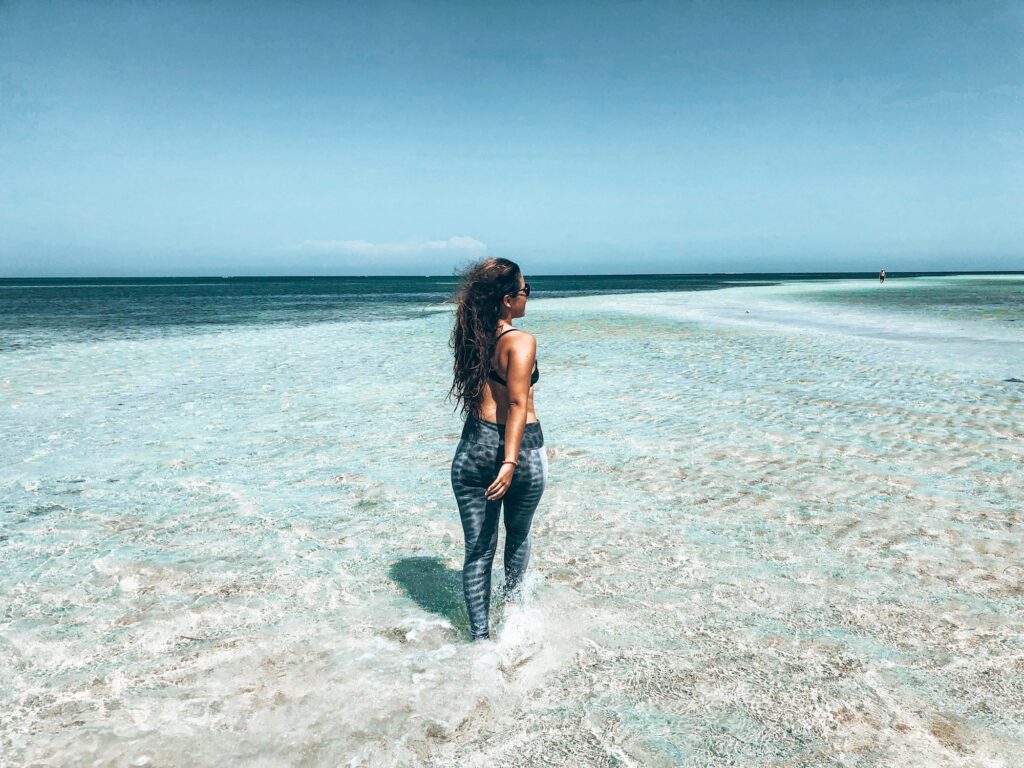
Of that 71%, a large chunk of it is ocean. And of that large chunk of ocean, 80% is unexplored. How awesome, right? The ocean is literally the last frontier – unexplored territory – on our planet. Scuba divers are on the forefront to discover what is yet to be known.
5. Scuba divers are limited by recreational limits
And part of the reason why so much of it is unexplored is because scuba divers are just a wee bit limited. In fact, recreationally, we’re capped at 130 feet below the surface. This is the depth deemed safe (although it requires a lot of training to get even this deep). Anything deeper? Even more equipment, extensive training and years of experience are required.
6. The world’s deepest scuba dive exceeded 1,000 feet
Which speaking of, a 41-year-old Egyptian gentleman named Ahmed Gabr set the world record for deepest scuba dive, plunging a mind-boggling 332.35 m (1,090 feet 4.5 in) in the Red Sea off the coast of Dahab, Egypt.
It took him 12 minutes to reach this depth and 15 hours to return to the surface.
7. Scuba divers explore all sorts of environments
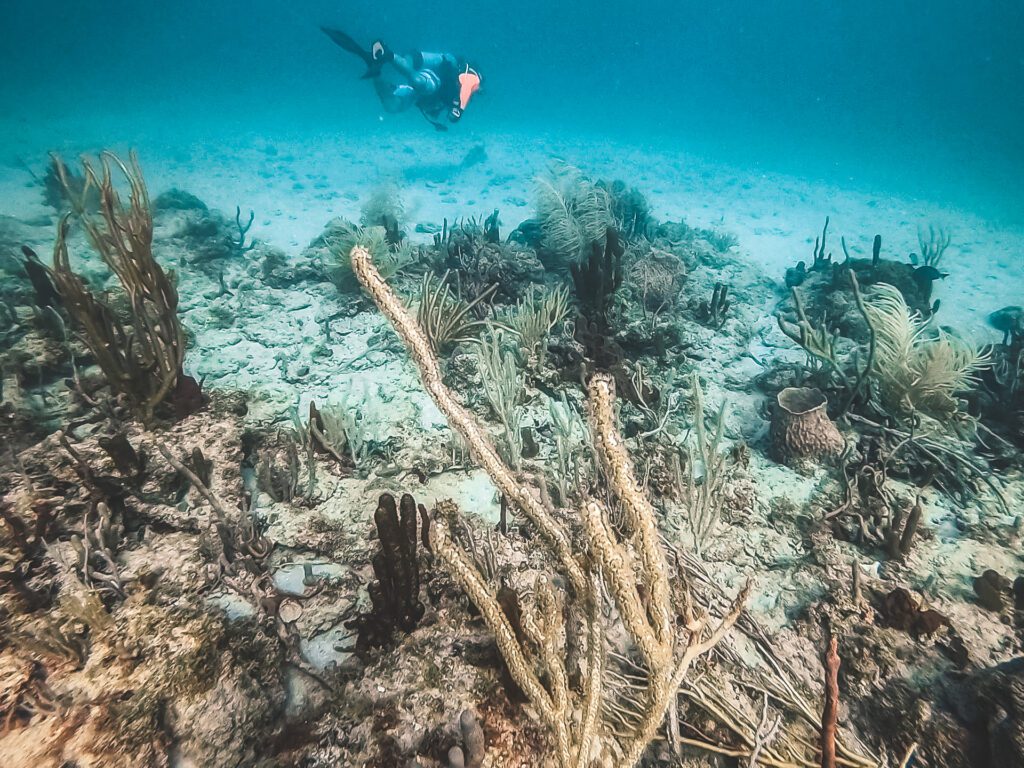
No body of water is safe from a scuba diver. Common dive sites include shipwrecks, coral reefs, lakes, flooded mines, sunken cities, springs, cenotes and caves.
READ MORE: 10 Must See Dive Sites in Fort Lauderdale
8. Water absorbs light
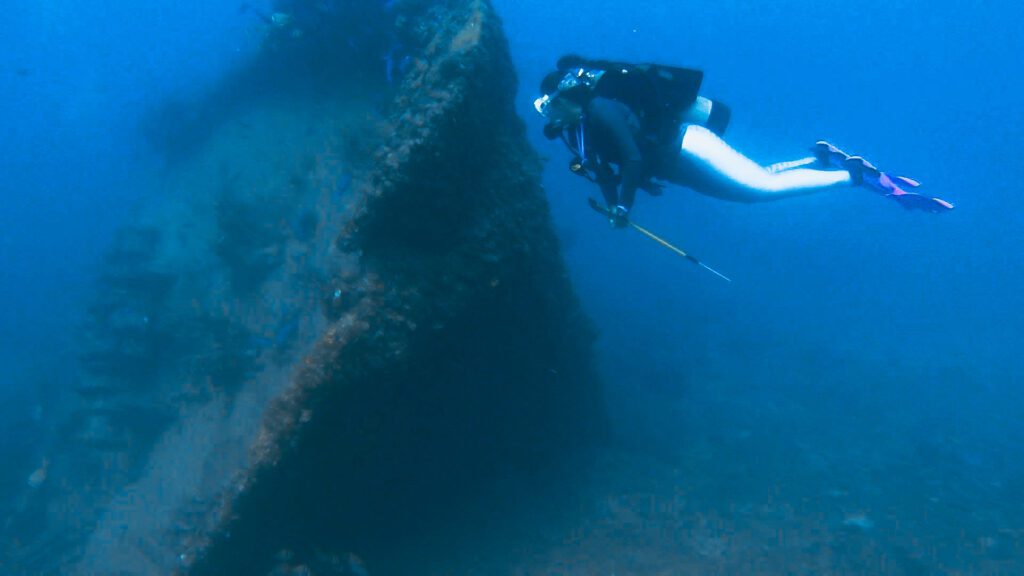
One of the first things new divers notice is the lack of color underwater. And that’s because water absorbs any sunlight piercing through the surface. But that’s not to say all is lost.
Now, think back to 6th grade science class and the spectrum of visible light. ROYGBIV sound familiar? It’s the colors of the rainbow! Duh!
As you descend underwater you begin to lose the colors of the spectrum. Red goes first. Orange second. Yellow third. And so on. Around 400 feet almost all light is gone.
That’s why divers bring underwater cameras (including GoPro) with attached filters to accommodate the lack of light. Take a photo or video and voila! Your video now has all the color that was missing underwater!
9. Sound travels 5x faster underwater
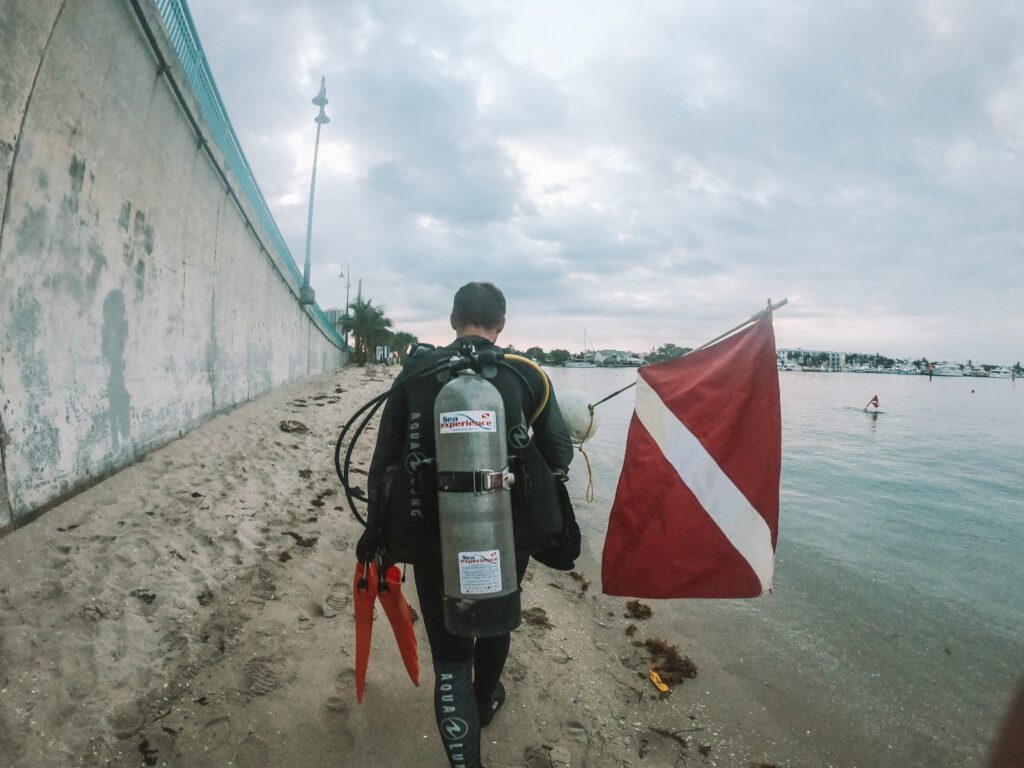
Ever been diving and it sounds like that boat on the surface is approaching fast? Like very fast? Well first of all, it probably is – better stay low. But another part of the reason is sound actually travels 5x faster underwater than it does air. Now, whether or not it travels farther is a difference story (see link above).
10. Sharks are friendly beasts
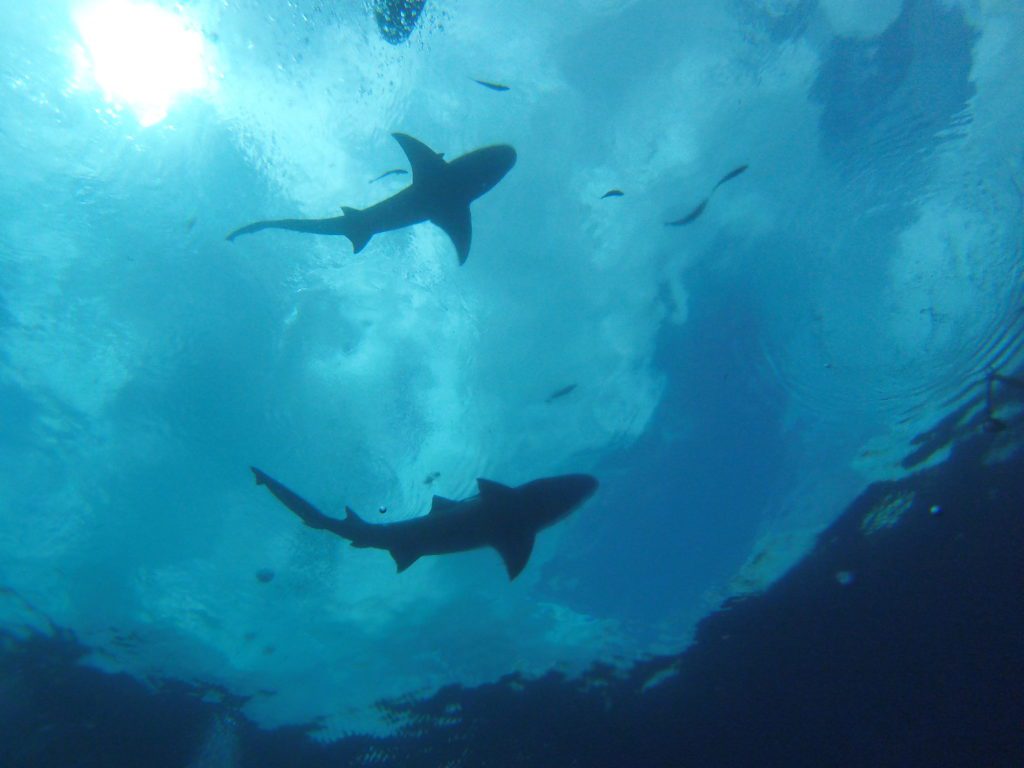
After the latest edition of Indiana Jones (Kingdom of the Crystal Skull), we all should have a bone to pick with Steven Spielberg. However, my original gripes with the movie director was from long ago in the 1975 film, Jaws. Ever since, sharks have been unfairly characterized and maligned (thanks a lot, Steven).
Truth is, sharks are gentle giants and RARELY, and I mean RARELY bite humans (57 unprovoked attacks worldwide in 2020). In fact, you’re more likely to get bitten by a human in New York City than a shark in the world.
Still not convinced? Vending machines account for more deaths in the US than sharks worldwide. Other things that are more likely to kill you than sharks? Coconuts, champagne corks, driving and hot dogs. Just to name a few.
READ MORE: Sharks Commonly Seen While Diving in Florida
11. More plastic than fish will be in the ocean soon
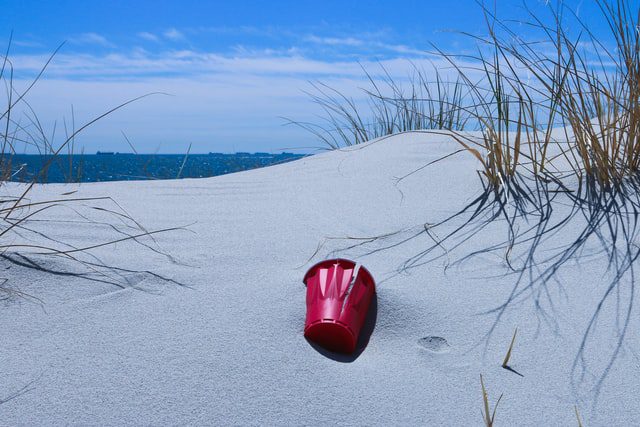
In a recent eye opening report, it’s estimated that by year 2050, the ocean will contain more plastic than fish. A devastating prediction that should scare the bejeezus out of anyone. But what can be done?
It’s a daunting task to solve but one that starts at home. Here is an article we wrote detailing all the ways you can help reduce your plastic use. In fact, scuba divers are at the forefront of this crisis – we’re the frontline defense!
And thankfully, many companies are joining the fight to remove as much plastic as they can from our oceans. Let’s work together!
12. Invasive Species are a huge threat
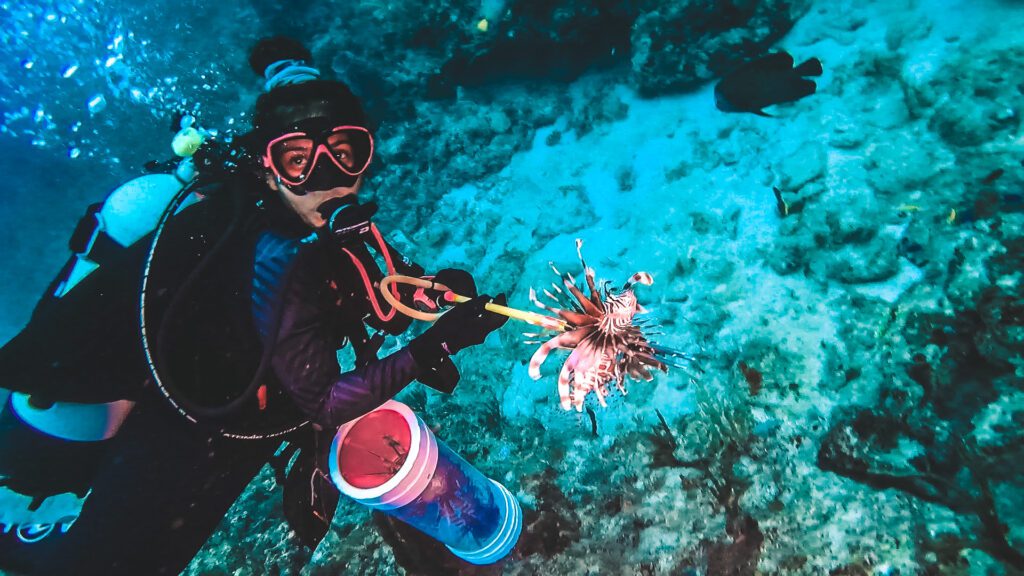
A seldom thought of problem our oceans are facing is threats from invasive species. In the Western Atlantic, in particular, lionfish are kicking ass and taking names. Meaning, they are absolutely destroying the coral reefs in Florida, The Bahamas, Caribbean, Gulf of Mexico and beyond.
What’s the solution? For a species as evasive as lionfish, scuba divers hunting them is the best means of removal!
It’s an intimidating thing to get involved in, and that’s why we’re here to provide you with all the information to get started hunting!
13. SCUBA requires a lot of gear
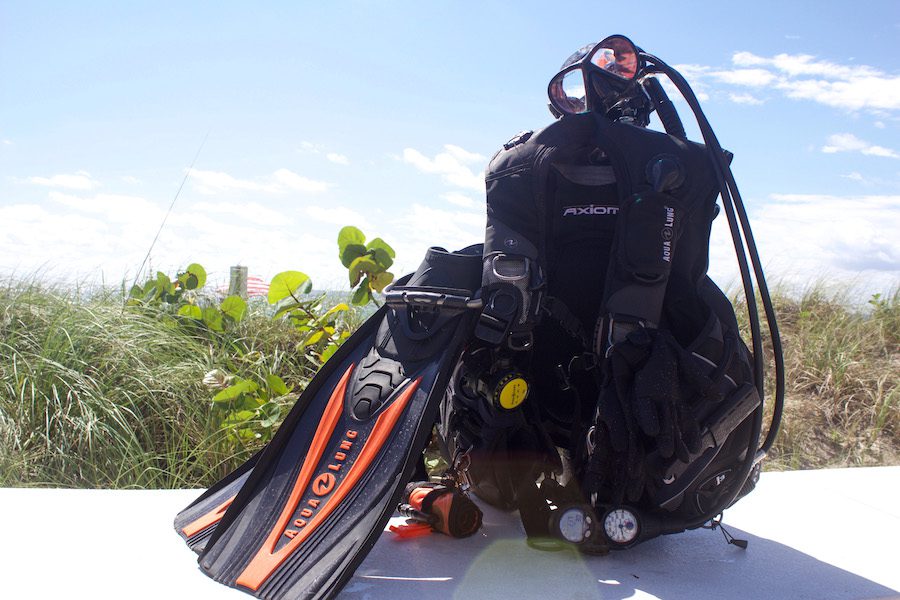
Part of the reason scuba diving is so intimidating to get involved with is the sheer amount of equipment involved. Large tanks, winding hoses, inflatable vests, gizmos and gadgets. Where do you even start?
We’ve simplified scuba gear to make it much less intimidating for the beginner (or advanced) diver. Check out our list for best scuba gear for beginners. If you’re a little more experienced, than don’t forget these 23+ items on your dive gear checklist.
14. SCUBA requires a lot of training
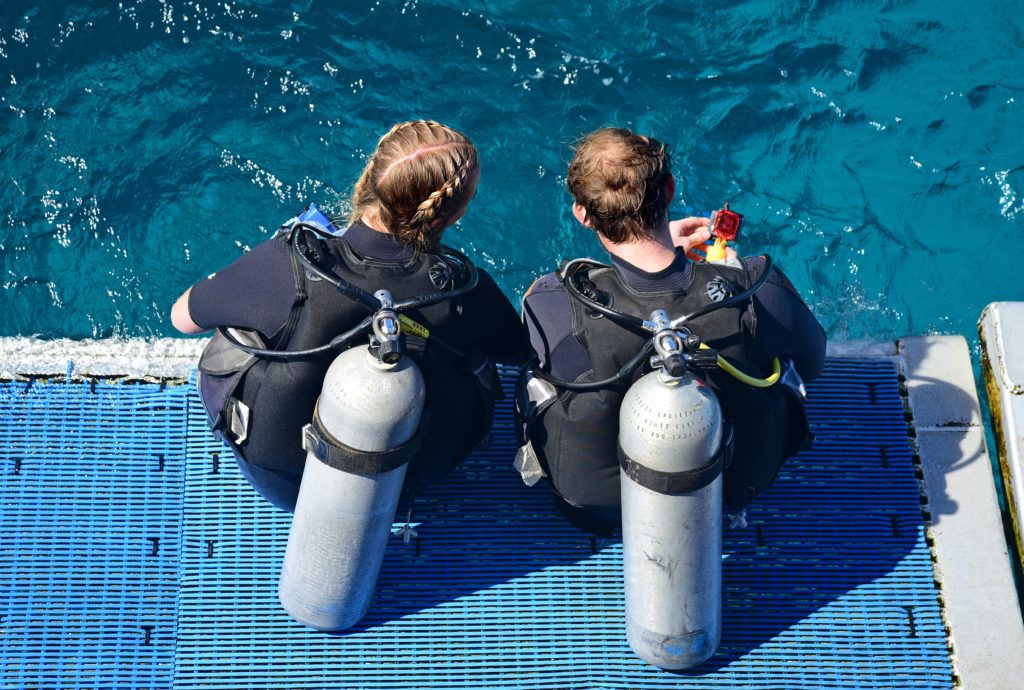
To become scuba certified you need to participate in a variety of classroom sessions, online learning, pool training, and open water dives. It’s no simple task.
Even past that, you’ll want to elevate your dive game with advanced certifications, wreck diving, enriched air and so on. The education and the training seems limitless. However, it’s an adventure of a lifetime and one that will open SO many neat opportunities for you.
15. Divers are avid travelers

Epic dives spread far and wide across the globe. So naturally, scuba divers are avid travelers – many of which dedicate their lives to seeing pristine coral reefs, ghostly shipwrecks or rare marine life. The list of places to see and explore is endless.
If you’re thinking to travel for your next dive destination, here’s a few articles that should help you plan accordingly and save some money along the way!
- Best Travel Insurance for Scuba Diving
- How to Find Cheap Flights
- How to Book Cheap Hotels
- Best Travel Scuba Gear
Scuba Diving Facts: Debrief
The fact is, there’s a lot of facts about scuba diving! So many we could barely boil it down to just 15. So, if you’re interested in MORE scuba diving facts, we recommend purchasing PADI’s encyclopedia for recreational diving. It’s packed full of more than enough tidbits, facts and info than you’ll ever be able to master in the span of a dive career.
Happy diving!
Enjoy this Post? Pin it!


Read More Scuba Diving Tips
We hope you enjoyed our post on scuba diving facts. Hopefully you’ll find it useful on your next adventure! Here are a few more ocean-loving articles we think you should read next:
- 11 Essential Items for Your Save-a-Dive Kit
- 10 Scuba Diving Refresher Tips
- The Vital Importance of a Scuba Safety Stop
- 9 Different Diving Gear Bags Every Diver Needs
What scuba diving fact surprised you the most? What’s a surprising fact that we forgot? Let us know in a comment below we’d love to hear from you!

